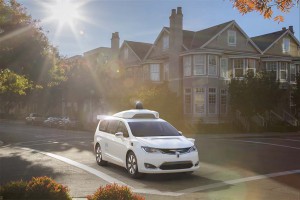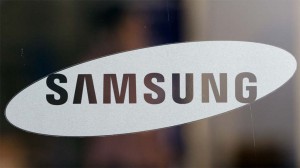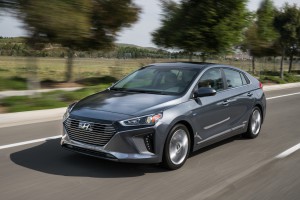The world’s largest manufacturer of smartphones has publicly joined the push to put driverless vehicles on the road, Samsung joining a field increasingly crowded with high-tech players like Apple, Amazon and Google spin-off Waymo – as well as traditional automakers including General Motors, Ford, Daimler, Nissan and Toyota.
Samsung has long been interested in the auto industry, starting a more traditional car manufacturing operation in 1994 before selling off a controlling stake to Nissan a few years later. It has lately been investing heavily in connected car technologies, including U.S.-based Harman International, and several Israeli tech firms.
This week, Samsung pushed into the autonomous space, getting approval from the government in South Korea to begin testing driverless vehicles. It becomes one of the 20 companies to win a permit from its home market.
The Korean tech company first signaled its interest in autonomous vehicles two years ago. But exactly what Samsung has in mind isn’t clear. It said in a statement it “has no plans to enter the car manufacturing business.” Instead, it appears to be looking to follow a path similar to that of Waymo, the Google spin-off that is looking for partners that would license its technology and purchase its hardware.
Last week, Waymo announced it would begin allowing families in Phoenix to test out its autonomous vehicle prototypes. It also announced it would purchase and then modify 500 more Chrysler Pacifica Hybrid minivans for that project. It previously purchased 100 of the plug-in people-movers.
(For more on Waymo’s public test program, Click Here.)
Significantly, those minivans are being outfitted with not only Waymo’s software but also hardware the tech company is manufacturing. As one of the world’s largest producers of consumer electronics, Samsung may eventually produce the technology it would need for autonomous vehicles, such as onboard cameras and radar sensors, as well as LIDAR, a 3D high-resolution form of laser.
In February of this year, Samsung invested in start-up TetraVue, a company using LIDAR to allow it to get a more complete view of the road, including vehicles, pedestrians and other obstacles.
“Samsung Electronics plans to develop algorithms, sensors and computer modules that will make a self-driving car that is reliable even in the worst weather conditions,” said Samsung.
According to a report by South Korea’s Yonhap News, Samsung will initially modify a vehicle produced by South Korea’s Hyundai.
The emerging world of autonomous vehicle technology is growing crowded, and quite rapidly. After long refusing to confirm it had plans to enter the automotive space, Apple last month received a license to test self-driving vehicles in California. Amazon has also indicated it may enter the space. Other high-tech firms include China’s Baidu and Waymo. That Google spin-off was long considered one of the segment’s leaders, with eight years of development under its belt, as well as more than 2 million miles logged by its prototypes on public roads.

Samsung is expected to follow Waymo's approach, developing autonomous tech to sell to established automotive manufacturers and start-ups.
(Is Amazon also ready to enter the autonomous vehicle field? Click Here for the story.)
But a recent study by Navigant Research questioned the assumption that Google was in the lead, cautioning that it will take more than just good technology. That study ranked Ford at the top, arguing that the second-largest U.S. maker, as well as rivals GM, Daimler and the Renault-Nissan Alliance, have come up with “pathways to production.” Tesla, meanwhile, has already begun rolling out its semi-autonomous Autopilot system and says it will update it to full autonomy by 2020.
The challenge for start-up ventures like Samsung and Apple, as well as Google, will be to find car manufacturers willing to license their technology.
One possible path will be to team up with one of the many new ride-sharing services, such as Lyft and Gett, who eventually hope to remove their drivers and turn to fully automated vehicles. Uber has set up its own autonomous research center in Pittsburgh and is now running several field tests around the U.S.
(For more on Apple’s autonomous testing program, Click Here.)


